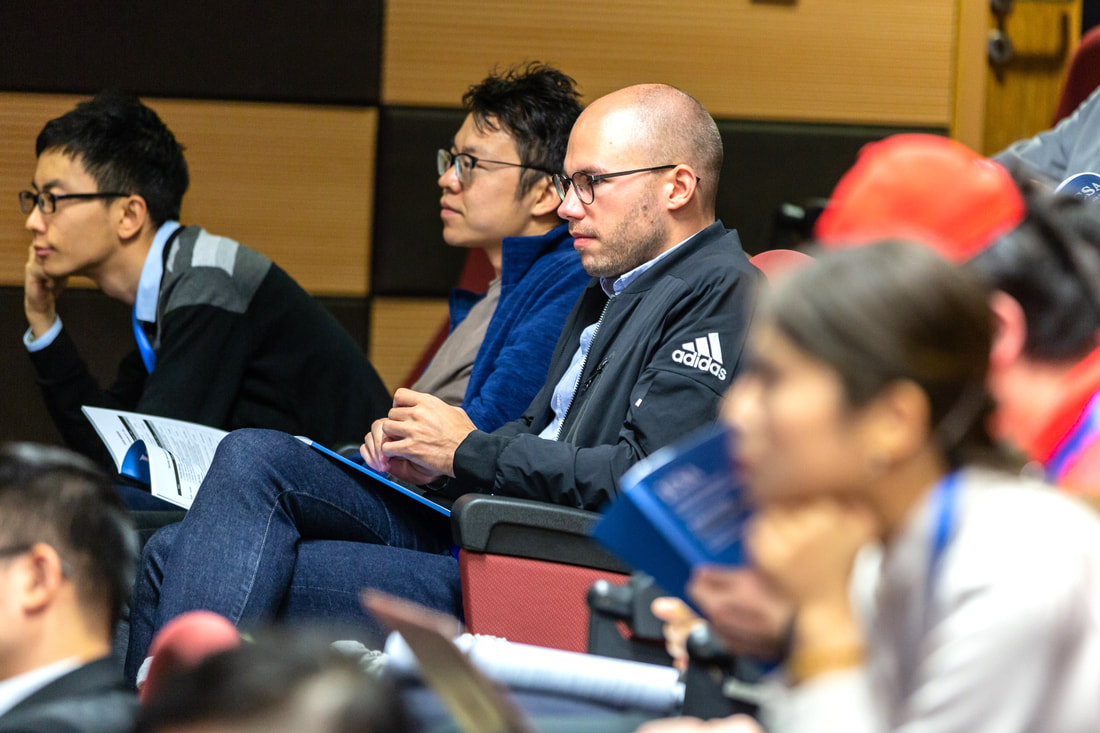|
‘Learning is a treasure that will follow its owner everywhere.’ (Chinese proverb) Action Learning facilitator training with different participant groups always surfaces fresh and fascinating insights, emphases and challenges. This week’s ALA training programme was with a group of health professionals in diverse roles and fields of practice ranging from nursing, occupational therapy and podiatry to mental health, speech and language and education. I was inspired by their enthusiasm, personal ethics and genuine commitment to culture change. As we worked through Action Learning principles and techniques and how to enable groups to do it well, we explored 5 shift areas to facilitate a transition: from diagnosis to elicitation; from issue to person; from there-and-then to here-and-now; from first questions to follow-up questions; from reflection to agency. I’ll say a little about each of these dimensions with some practical examples below. The goal in each is to enhance participants’ learning and impact. From diagnosis to elicitation is a shift in who owns the issue from, say, ‘Tell me more about X so I can help you?’ to e.g. ‘What questions is X raising for you?’ From issue to person is a shift in focus from, say, ‘What’s the situation?’ to e.g. ‘What challenge is this situation posing for you?’ From there-and-then to here-and-now is a shift in temporal orientation from, say, ‘What have you tried?’ to e.g. ‘Given what you have tried, what stands out as the critical issue now?’ From first questions to follow-up questions is a shift in depth to move below and beyond, say, ‘How important is this to you?’ to e.g. ‘Given how important this is to you, what are you willing to risk?’ From reflection to agency represents a shift in traction from, say, ‘What sense are you making of this?’ to e.g. ‘What actions will you take to address this?’ A skill of the facilitator is to build the capacity of an Action Learning set to navigate these shifts in service of a presenter.
8 Comments
‘If you’re not confused, you’re not paying attention.’ (Tom Peters) Leaders who develop strategy collaboratively with diverse key stakeholders often find that inviting others in proves critical to its success. It recognises that no leader, no matter how knowledgeable or experienced, can know everything and it values the contribution that others can bring. That said, leaders can also feel overwhelmed if levels of participation are high and inputs are complex. These tips (below) are, therefore, designed to help leaders sift through and make sense of the reams of hopes, ideas, information, impressions, data etc. that they may surface and receive through strategy research and through inviting input from various people and groups. They are not intended as a prescriptive one-size-fits-all set of rules. Have a glance and see which, if any, work best for you. 1. Don’t panic In the midst of some great information and ideas, you are also likely to receive input that will look unclear, confusing or contradictory. There may be handwriting you can’t read, comments in shorthand that made sense to the person who wrote them but don’t make sense to you etc. You may receive so much input from diverse people and sources that it could feel bewildering. If so...don’t panic! 2. Research questions Go back to your research questions. Use them as a guide to sift through the input you have received. How far does the overall input contribute to answering the questions you set out to address? Has any of it raised wider or deeper questions that need to be acknowledged? Is any of the input interesting but distracting? Avoid the temptation to race down fascinating rabbit holes that take you off track. 3. Test a hypothesis Some leaders suggest formulating a hypothesis – a provisional answer to the questions you set out to answer – before sifting through responses. This provides a focus, a testing stone, and enables you to check each response: ‘Does this support or contradict the hypothesis?’ If it doesn’t relate to the hypothesis, shelve it for now so that you don’t get distracted. You can always circle back to it later. 4. Cluster responses Some leaders prefer to start with a blank sheet, skim through responses and note intuitively what core themes or ideas emerge. You can then place responses under those themes, adding or modifying themes as the sifting process progresses. Don’t worry about identifying the themes perfectly too early. You can always hone them and see what answers they point towards later. 5. Test your biases It can be tricky for leaders to look at responses afresh, especially if we have a strong interest in the work we do currently or strong views about how we should move forward. During the research phase, I refer to these challenges as ‘blind spots’ (assumptions) and ‘hot spots’ (sensitive areas). Invite others to test your assumptions and to point out if you appear to avoid challenges or new ideas. 6. Trust the process We may have invited and received input from a diverse range of people and groups. Whilst no strategy research will ever be 100% exhaustive and conclusive, the insights that we draw through a collaborative strategy venture will in most cases be good enough – that is, good and enough as a signpost to the future. Pray, be confident in what you know and excited by what you discover! ‘The question is to provoke fresh thought, not to elicit an answer.’ (Stephen Guy) I thought that was a great way of framing it. At an Action Learning Facilitators’ Training event with the NHS this week, we were looking at open coaching-type questions in the exploration phase of an Action Learning round and how they differ from, say, simple questions for clarification. A great question for exploration often stops a presenter in their thinking tracks. We may notice them fall silent; gaze upwards as if on search mode; get stuck for words; speak tentatively or more…slowly. That’s very different to a presenter who answers quickly, fluently or easily – as if telling us something they already know or have already thought through for themselves. In a different Action Learning set recently, one presenter did just that. They were speaking as an expert, not as a learner, so I invited them to count to 10 silently before responding to any question posed – and invited the rest of the group to count to 10 silently too, after the presenter had spoken, before offering a next question. The idea here was to allow the questions to sink deep. Thomas Aquinas, a philosopher and theologian, commented (my paraphrase) that a great question sets us off on a journey of discovery. Brian Watts observed, similarly, that the word question itself has the word quest embedded in it. Sonja Antell invites a presenter simply – but not always easily – to ‘sit with the question’, to reflect in silence and allow the question to do its work. It’s often the place where transformation occurs. ‘You can never really know someone completely. That’s why it’s the most terrifying thing in the world, really – taking someone on faith, hoping they’ll take you on faith too. It’s such a precarious balance. It’s a wonder we do it at all.’ (Libba Bray) There’s an idea in Gestalt psychology that we’re predisposed, hard-wired, to ‘fill in the gaps’. Here’s a real and practical example. I was once invited to facilitate a conference of around 50 people from diverse professional backgrounds in the housing sector. I had never met anyone in the group and they had never met me. I stood up on the podium, introduced myself simply as ‘Nick Wright, an organisation development consultant from England’, then invited everyone to take a pen and paper. I explained that I would ask them a series of questions about myself, to which they were to guess the answers. ‘Which newspaper do I read?’ ‘What political party will I vote for at the next General Election?’ ‘Am I married, or single?’ ‘What is my professional background?’ ‘What’s my favourite hobby outside of work?’ I then asked who had been able to answer every question. Everyone raised their hands. I now invited them to draw a simple face against each of their answers – which they wouldn’t be expected to share in the group. A happy face meant their answer drew them towards me; an unhappy face that it pushed me away. A neutral face meant, well, neutral. Again, everyone managed to do it. I paused and invited them to reflect at their tables on what had just happened. Person after person said how astonished they felt at how quickly and easily they had created a profile of me in their minds, and how that had influenced how they felt about – and were now likely to respond and relate to – me. They had filled in the gaps of not-knowing by drawing on hopes and fears, past experiences, personal projections, cultural assumptions etc. Filling in the gaps enables us to relate quickly to others rather than starting every relationship as if from scratch. It also risks unhelpful stereotyping and bias. This raised important questions for participants at the conference so I offered 3 principles: compassion, curiosity and challenge. Compassion: ‘What do I need to feel safe to contribute in this group? ‘How can I demonstrate a compassionate stance towards others?’ Curiosity: ‘What assumptions am I making about those around me, e.g. based on their looks, accent or job title?’ ‘Who or what is influencing the ways in which I’m thinking about, feeling about and responding to others?’ Challenge: ‘What am I not-noticing about those around me?’ ‘How open am I to have my beliefs about others tested?’ ‘Sometimes a language does exactly what we think it should; sometimes it goes places we don't like and thrives there in spite of all our worrying.’ (Kory Stamper) I taught English recently at a Montessori school in Germany. I was struck by the amazing level of conversational English of some of the students, and asked how it was possible that they could understand and speak so confidently and fluently at such a young age. Almost all replied that they have learned spoken English via online computer games, where they interact informally and socially with other young people from all over the world. English, for them, isn’t just another foreign language. It’s a form of linguistic currency that enables international communication, relationships, learning and fun. I find myself wondering what the impact will be over, say, 30 years of so many young people 'rubbing shoulders' with international English in this way. I won’t be around then to know the answer to the question, but I suspect that German, currently with 16 different ways to say, for instance, the English word ‘the’, will become simplified in common usage, so that speakers will start to use just one form of definite article in their own language too. We may also see conventions in other increasingly-international languages, such as Mandarin Chinese, influencing how other languages are used. What do you think? 'Language is a process of free creation.' (Noam Chomsky) A talented linguist and disciple of Noam Chomsky invited Jacob, a young German student, to reflect on which of two sample sentences in English was correct. Jacob was unsure about the exact meaning and structure of the phrases yet, gesturing with his hand to his chest, he then pointed thoughtfully at one and said, ‘I don’t know, but it feels like it’s this one.’ I was stunned. He was correct, and he didn’t know how or why. The teacher explained. Jacob has been exposed over time to English via e.g. social media, computer games etc. He somehow knows the answer; less analytically and more intuitively. I flashed back in my own memory to a time when, as a teenager, I was learning French at school. I had a hunch, an idea, that if I played French radio in the background in my room, I too would become tuned into the language even if I didn’t understand anything that was being said. Over time, I did start to distinguish one word from another, then to notice recurring words, then to become aware of the contexts in which certain words or phrases were used. I started to hear the accent, word stress and intonation. It wasn’t a conscious process so much as, like an infant child, a learning of language by immersion. This linguist then invited a wider group of students to play a fast-paced game that involves using lots of different words in English. They didn’t necessarily know or understand the words and the teacher, a speaker of five languages, didn’t translate them. I was puzzled by this and asked why. Pointing to Chomsky, she took me back to the same core principle I had discovered for myself as a teenager. The students don’t know the meaning of the words now, but when in future they hear them used in context, the words and meanings will connect. Immersion enables deep language-learning by intuition. ‘You can’t depend on your eyes when your imagination is out of focus.’ (Mark Twain) I worked with a group of very busy professionals this week who had carved out precious space in their diaries to help each other think through complex work-related issues. The process I was there to facilitate can be powerful yet demanding and requires presence, focus and careful listening. I’ve noticed that one of the challenges of meeting, particularly online, to do this type of work is that participants can feel time-pressured or tempted to leap straight into the session from other meetings, phone calls or tasks. In order to enable participants to arrive, therefore, I invited them to pause for a moment and to create their own ‘not to-do’ list for the next 12 hours. The session itself would only last for 4 hours, interspersed with breaks, but it allowed them opportunity to reflect and...breathe. After a few minutes, I invited them to disclose highlights from their lists and to share what it was like to identify not to-dos. They said they found it empowering and releasing. Now they could focus. What focusing exercises have you found useful? ‘To venture involves risks, but with the potential for great gain.’ (Fook & Askeland) A critical success factor in coaching and Action Learning is a willingness for participants to disclose opportunities or challenges they are facing, in order that they may learn through critical reflection and increase their sense of agency. At times, this may involve surfacing subconscious personal and cultural assumptions to enable self- and peer-examination. In doing so, we may draw on fields of learning and practice including Chris Argyris and Donald Schön’s double and triple-loop learning. The originator of Action Learning, Reg Revans, urged, ‘Swap your difficulties, not your cleverness’. Yet, although this can sound simple in principle, in some contexts it may run against norms and conventions of behaviour. In some cultures, for instance, to disclose a difficulty – especially in a group – could feel politically risky or even shameful. If a person were to share openly in that context, peers from the same cultural group could also feel anxious for that person and desire to protect them. This safeguarding instinct may be amplified in health and social sector contexts where participants may be used to working with vulnerable people and groups and-or have lived experience of trauma. If their professional training has evolved from or been influenced by counselling or therapy, they may find posing high-challenge questions uncomfortable or threatening; especially if they associate asking searching questions with, for instance, investigations or judgements re. access to services. In some cultures, to disclose personal rather than strictly situational challenges can be regarded as inappropriate and unprofessional. In some cultures, rationality and objectivity may be regarded as having higher value than intuition, subjectivity or emotion. Participants may find themselves preoccupied with problem analysis and formulating definitive answers and solutions, rather than enabling a person to sit with ambiguity, uncertainty and tension. A vital role for a coach or facilitator is to build trust, curiosity and critical reflexivity; drawing on any filters, biases and experiences that emerge as tools for transformation. 'Growth occurs when individuals confront problems, struggle to master them, and through that struggle develop new aspects of their skills, capacities and views of life.' (Carl Rogers) A common consideration we face in coaching and action learning is, when asking a question, whom the question – or indeed the answer to the question – is for. For instance, if a person is describing a scenario in sketchy terms, we may be tempted to ask them to say more about it so that we have a better picture of the situation they have in mind. If they use jargon or acronyms with which we are unfamiliar, we may ask them to explain what they mean in order to fill our information gaps. If you work in a job such as a manager, professional or consultant, this approach to asking questions may sound and feel very familiar to you. It’s probable that you are employed in such a role because you’re an expert in your field and are able, therefore, to contribute. It may be that others come to you with tricky problems in the hope that you can solve them for them. It’s likely that you will ask questions that help ensure you’re able to offer an appropriate diagnosis, prescription or solution. Now turn this on its head. In coaching and action learning, I don’t need to know very much at all about a situation another person is talking about. My role is to help them to explore fresh avenues of thought and experience for themselves, in order to find or create their own innovative solutions. When I present this idea in training workshops, however, I often see participants look back at me with scepticism. ‘How are we supposed to pose useful questions if we don’t know anything?’ In one such workshop this week, I invited a group of online participants to engage in a simple experiment with me. I asked them to pay close attention, while I described a real challenge I’m dealing with. Before I began to say anything more about the issue itself, however, I turned off my microphone. Then, after a few minutes of speaking, I turned on my microphone again and asked them what questions they could now pose to help me think through my own issue more broadly or deeply. It was a lightbulb moment. After a few moments of silence, questions began to emerge. ‘Which aspect of this matters most to you?’ ‘If you were to be successful in moving ahead with this, what would that look like?’ ‘Which part of this is causing you greatest anxiety or concern?’ I then turned off the microphone again and spoke further. A few minutes later, microphone back on again…then another invitation for questions. The group paused again, then posed further questions to me. ‘Where are you at now in relation to your thinking about this?’ ‘How will you know if you have landed on the right decision?’ ‘What support will you need to move this forward?’ It was a powerful moment of realisation. As we reviewed together what had happened, some profound group insights emerged. ‘We didn’t get drawn into the issue with you because we didn’t know what you were talking about.’ ‘Our questions focused on you in relation to the issue, rather than on the issue itself.’ The client is the expert. My role is to help develop, release and apply that expertise to influence change. Curious to discover how I can help? Get in touch! ‘Think of your techniques as toys rather than tools.’ (Brian Watts) This was an insightful, inspiring and innovative coach who had a gift for working at the learning edge, the leading edge, the sometimes bleeding edge. I had the pleasure of working with him as a close colleague and as a client. For me, it was a profound, at times disconcerting, and yet often invigorating learning experience. It challenged my ingrained, default ways of thinking about and doing my work. It also gave me my first experiential taste of the power of Gestalt. His approach started with a simple and open invitation, ‘Be free, creative and experimental. See what happens. Let the child play!’ His conviction was that transformation takes place (a) through experiential learning, and (b) at what is, for the client, his or her own learning edge. It’s that frontier horizon at which we place our self- and culturally-imposed limits. It’s the stretched and stretching place where we may discover our own subconscious psychological defences too. I talked about a forthcoming meeting with an executive team. I was new in my career and found the anticipation of this encounter very anxiety-provoking. The coach invited me to leave the room, then to step back in as if entering the executive meeting room itself. When I did so, he observed (to my surprise) that I was holding my hand across my chest, as if protecting my heart. ‘How would it be if you were to reveal your heart in that meeting?’ I did so, and that transformed everything. In the creative, experimental spirit that lays at the heart of Gestalt coaching, he reminded me, ‘Sometimes these things will fall flat. It’s always a leap of faith.’ It’s a suck-it-and-see approach: try something new and see what may emerge into awareness. It taught me that learning has rational, emotional, intuitive, imaginative and somatic dimensions. I discovered I stand to learn most when I take a risk, when I dare to step out and beyond my natural-instinctive learning mode. Curious to experience the power of Gestalt? Get in touch! [For more examples of Gestalt coaching in practice, see: Just do it; Crab to dolphin; Let's get physical] |
Nick WrightI'm a psychological coach, trainer and OD consultant. Curious to discover how can I help you? Get in touch! Like what you read? Simply enter your email address below to receive regular blog updates!
|













 RSS Feed
RSS Feed